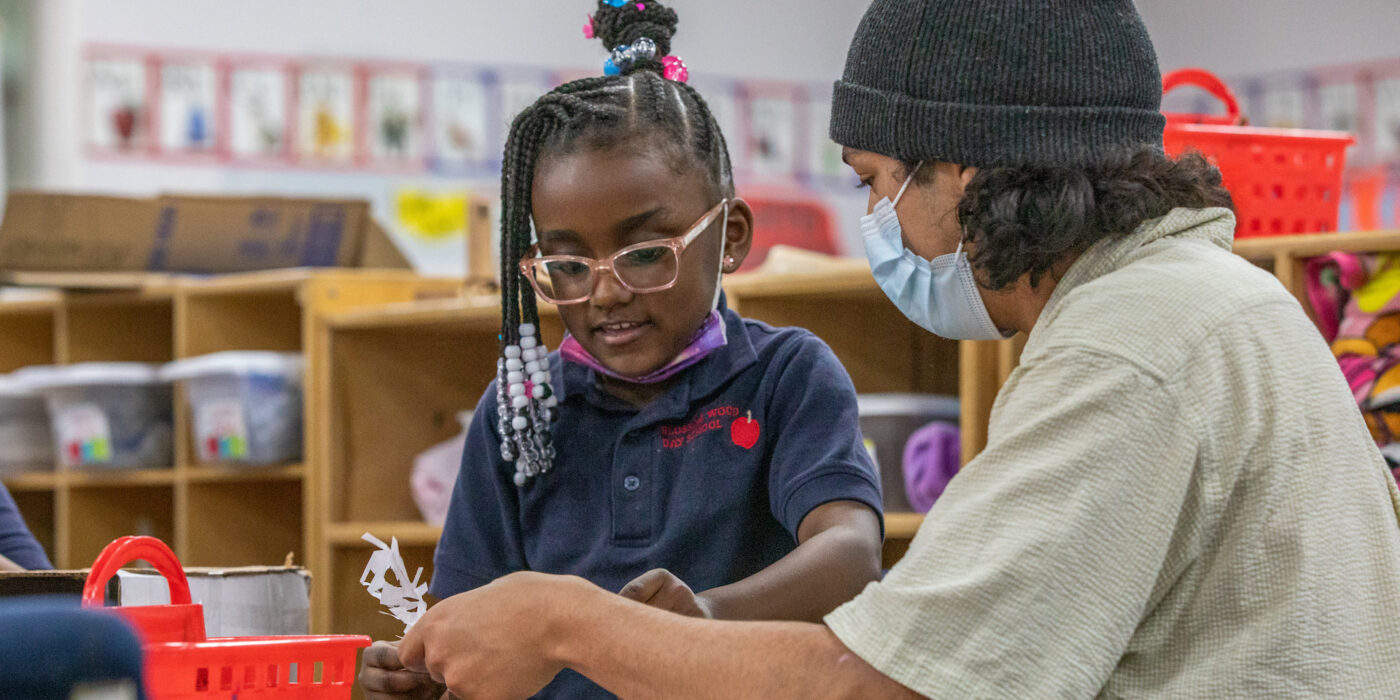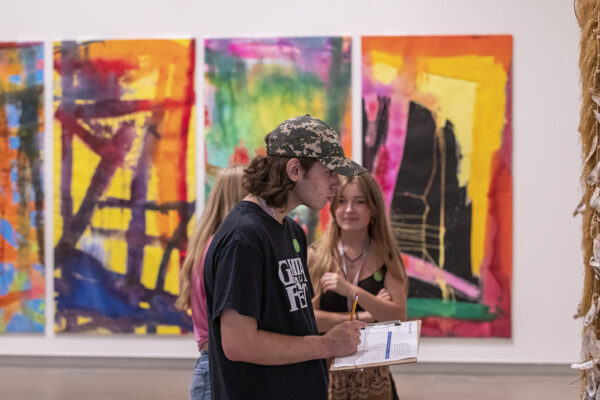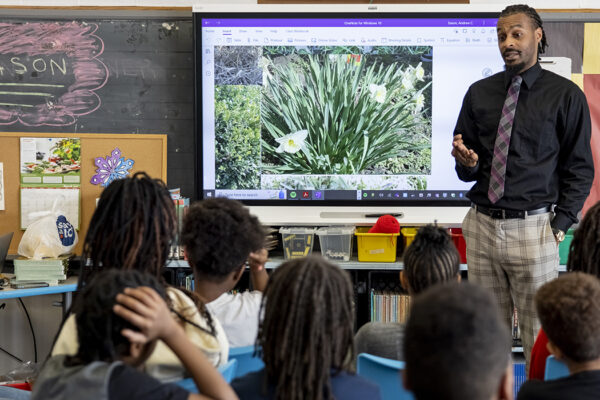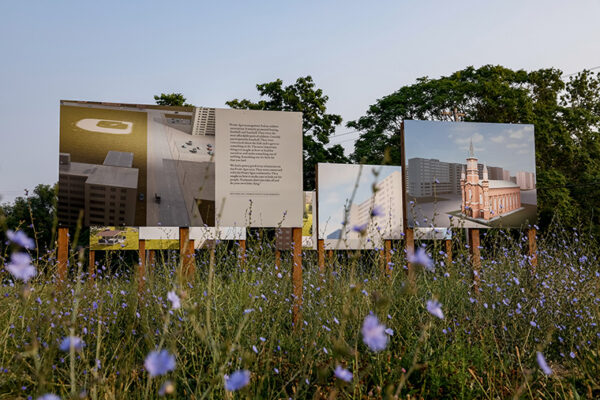Each Thursday last spring, kids excitedly cut cardboard and glued construction paper as Washington University students guided and encouraged them to investigate, experiment and build.
In “Explore and Contribute,” students from across the university create curricula and then teach elementary students hands-on problem-solving projects revolving around issues like climate change and homelessness. During the 2023 spring semester, WashU students worked in pairs with small groups of students at Blossom Wood Day School, a private school in Hazelwood, a suburb of St. Louis.
“The WashU students are very nice, very helpful, very kind,” says sixth grader Shane Robinson, as he was working on a cardboard house. Fellow sixth grader Jeremiah Phillips was building a grocery store. “I enjoy building things, and the WashU students are fun to interact with,” Jeremiah says.
The elementary students shape projects based on their interests. During one visit, third graders built a LEGO Easter house for a clay bunny named Carrots. A fifth grader wielded a glue gun as he proudly pointed out the wooden TV and sofa in his two-story cardboard house. First graders made and tested different types of paper airplanes. Second graders colored in the floorplans for their houses. And a girl concentrated on drawing jellyfish and stingrays that she intended to turn into a sculpture.
“Our students are really, really excited to work with college students. It’s the highlight of their week,” says Mikia Pollard, head of school at Blossom Wood Day School. “It’s a great partnership for WashU in North County.”
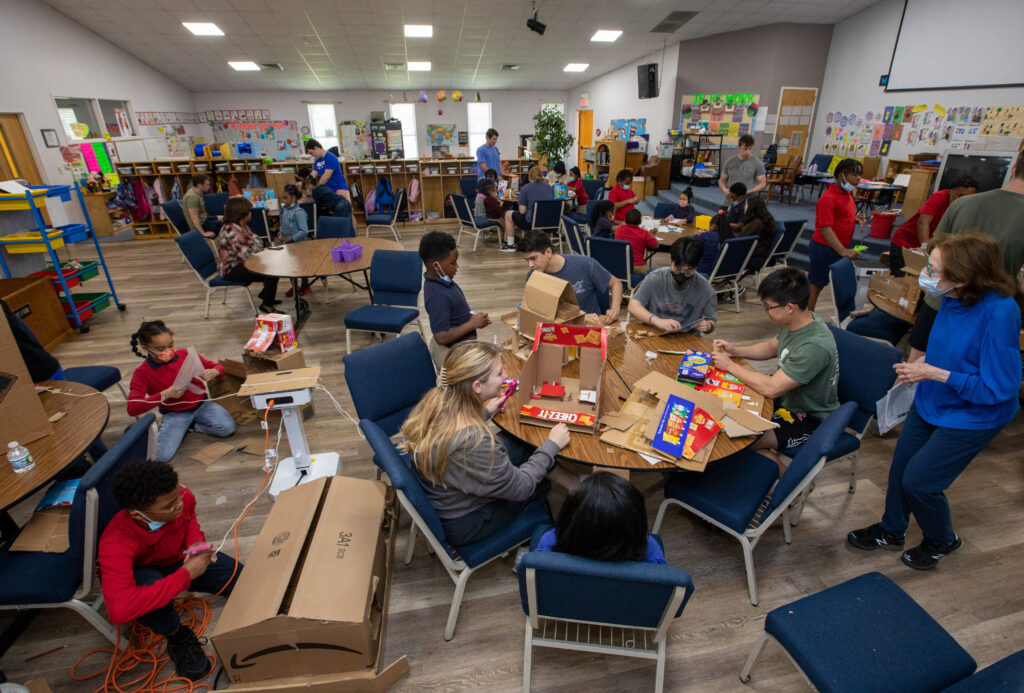
“Explore and Contribute” is one of several courses taught by Gay Lorberbaum, AB ’66,
MA ’67, that have reached into St. Louis–area schools over the years. In the past, she has brought WashU students into Adams Elementary and Compton-Drew ILC Middle School in the Saint Louis Public School District.
“So many of the WashU students want to learn more about what’s really happening in St. Louis and the world and want to come up with ways to help,” says Lorberbaum, a senior lecturer in the College of Architecture in the Sam Fox School of Design & Visual Arts.
Lorberbaum says courses like hers allow students to think outside the box. In an effort to get to know each of their gifts and challenges, she requires two individual conferences with each student during the semester.
“I try very hard to help them with each of their journeys. In their majors, they have so many requirements, they don’t get to study some of their other interests,” she says. “So, in this course, they can develop a curriculum with the kids that encompasses all of their intellectual interests — not just their major. I think that’s important.”
Lorberbaum also says collaboration is key among her students, who represent areas of study as diverse as business, computer science, physics, economics, biomedical engineering and architecture.
“They’re in this course with students from different disciplines, so they can benefit from the knowledge base of all of these other WashU students,” she says. “We all help each other in creating curricula.”
And her students appreciate the opportunity to flex their creativity while getting out of the WashU bubble.
“This course is a unique opportunity to explore my interests and teach young students at the same time,” says Will Simon, BArch ’23, an architecture student who graduated in May.
“It’s a way for WashU students to engage with the St. Louis community,” says Vanessa Nasser, AB ’23, who majored in psychology and minored in writing and organization and strategic management. “It allowed me and my peers to channel our creativity while simultaneously helping those around us.”
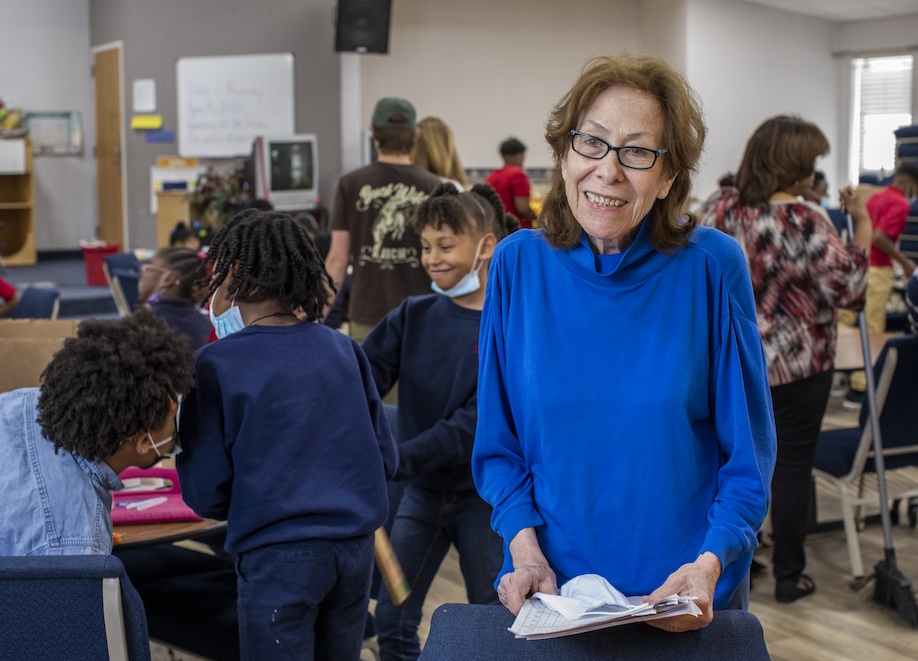
Gay Lorberbaum’s decades of service
“Explore and Contribute” is a product of Gay Lorberbaum’s passion for bringing design education to under-resourced communities.
In over four decades at WashU, Lorberbaum has created several outreach courses working with St. Louis–area schools — first through American culture studies in Arts & Sciences and now through architecture.
In 2007, Lorberbaum began directing the Alberti Program. Through the initiative, WashU architecture students lead free workshops for students age 6–18 on Saturdays during the academic year and in a three-week summer camp.
In 2012, she helped found Building Futures, a design-build nonprofit workshop that serves over 1,000 students in weekday in-school classes, after-school programs and summer programming.
For her years of service to the St. Louis region, she received the 2009 Gerry and Bob Virgil Ethic of Service Award from Washington University.
